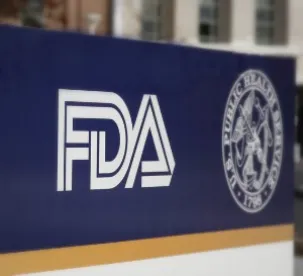On July 10, 2019 Ned Sharpless, M.D., the Acting Commissioner of the Food and Drug Administration (FDA) issued a statement reaffirming FDA’s commitment to overseeing the manufacturing, marketing, and sale of e-cigarettes. The statement outlined FDA’s current and anticipated regulation of e-cigarettes, and discussed the balance of keeping e-cigarettes out of the hands of minors while exploring the potential for e-cigarettes to reduce adult smoking of more harmful tobacco products.
FDA Shift In Focus
In August 2016, FDA assumed authority over all electronic nicotine delivery systems (“ENDS”) through its foundational “deeming rule.” ENDS include finished products such as e-cigarettes, vapes, e-liquids, e-cigars, e-pipes, and e-hookahs, as well as components or parts such as atomizers, flavors, bottles containing e-liquids, and tank systems.
Regulating and overseeing ENDS has been a priority for FDA since assuming authority over these products in 2016. FDA’s primary focus at the time, however, was curbing the use of combustible tobacco products, such as traditional cigarettes. FDA recognized that nicotine—a highly addictive substance—is most harmful when delivered through smoke particles in combustible cigarettes. And e-cigarettes could diminish the use of more harmful traditional cigarettes.
After market data from 2017-2018 showed an “epidemic-level rise” in youth use of e-cigarettes, however, FDA developed a laser-like focus on e-cigarettes. The market had become saturated with e-cigarette products in flavors and packaging appealing to youth. Fruit flavors such as mango, already banned in traditional cigarettes, were popular among youth. Some companies were more egregious than others in targeting adolescents. For example, in November 2018, FDA, in conjunction with the Federal Trade Commission (FTC) issued warning letters to companies selling e-liquids that closely resembled candy and cereals, such as Lucky Charms and Cinnamon Toast Crunch.
In response to the growing appeal of e-cigarettes to youth, FDA announced a shift in its compliance policy in March 2019. Under the revised policy, FDA ended its compliance policy for flavored ENDS (except mint and menthol-flavored). Previously, for all ENDS products on the market as of August 8, 2016 (the date of the deeming rule), FDA had announced its intention not to enforce premarket review requirements until August 2022, with the expectation that many such products would remain on the market. Under the revised policy, FDA put manufactures and retailers on notice that they may be subject to FDA enforcement for selling flavored ENDS products without authorization. FDA also tightened the deadline for companies selling non-flavored ENDS products to submit premarket tobacco product applications (PMTAs) from August 8, 2020 to August 8, 2021.
Current Regulation
FDA regulates ENDS primarily through (1) restrictions on youth access at tobacco retail outlets; (2) submission requirements for ENDS manufacturers; and (3) premarket authorization.
- Restricting Youth Access. To restrict youth access, FDA has banned the sale of ENDS to minors (under 18) and required retailers to verify the age by photo ID of individuals under 27 who purchase any tobacco product. FDA also has banned the distribution of free tobacco product samples and prohibited the sale of tobacco products in vending machines, except in adult-only facilities. FDA has enforced these measurements through retailer inspections and the issuance of warning letters and civil monetary penalties to retailers. FDA also has been proactive in monitoring the marketing of tobacco products to minors by working with companies such as eBay to remove certain listings for e-cigarettes.
- Manufacturer Requirements. Similar to manufacturers of traditional tobacco products, manufactures of ENDS products must meet regulatory requirements including, but not limited to: (1) registering their establishments and listing their products (with labeling and advertisements); (2) submitting tobacco health documents; and (3) submitting ingredient listings. Manufacturers also must include on packages and advertisements for ENDS (including certain ENDS components, such as e-liquids) the required warning statement “WARNING: This product contains nicotine. Nicotine is an addictive chemical.” FDA has issued warning letters to manufactures that failed to include the requisite warning labels for their products when advertised through social media influencers.
FDA also has demanded from prominent ENDS manufacturers documents evidencing their marketing and research of ENDS products. For example, FDA sent a letter to JUUL Labs, Inc. in April 2018, under its authority in Section 904(b) of the Federal Food, Drug, and Cosmetic Act, containing onerous requirements to produce documents on JUUL’s marketing strategies, product design, and effects on youth, including behavioral and physiologic effects.
- Premarket Authorization. Any tobacco product not on the market prior to February 15, 2007, is considered a “new product,” and must be evaluated by FDA prior to market entrance. Manufacturers of ENDS on the market after February 15, 2007, must submit an application for premarket approval or otherwise obtain agency product approval. ENDS products on the market as of August 8, 2016, must submit premarket authorization by August 8, 2021. Any ENDS product marketed after August 8, 2016, will not receive a grace period and must comply with marketing authorization from FDA before market entrance.
FDA Priorities
Given the sharp increase in e-cigarettes among youth, and particularly teens, FDA will continue to go after retailers who sell to minors, including online outlets and brick-and-mortar stores. Companies that market their products to adolescents, whether in teen-friendly packaging or in teen-friendly flavors (e.g., fruit or food-like flavors), will continue to be targeted by FDA.
FDA also will invest in science and research to understand the short-term and long-term health effects of ENDS. Most importantly, FDA wants to understand whether e-cigarettes can be a less harmful alternative to traditional cigarettes. Acting Commissioner Sharpless recognized that there are data that show ENDS can reduce the use of combustible cigarettes and may be less harmful than traditional cigarettes. The promise in helping addicted adult smokers, however, must be balanced with the risk of exposing adolescents to e-cigarettes and potentially creating a much-larger population of nicotine addicts.



 />i
/>i
